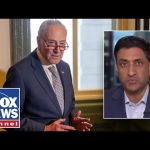President Trump moved swiftly this week to scrap tariffs on dozens of food products, announcing the rollback on November 14, 2025 in a bid to blunt the pain Americans feel at the grocery store. The exemptions cover staples from beef and tomatoes to coffee, bananas and other tropical fruits, a sharp reversal from the sweeping import duties his administration imposed earlier this year. This is a high-stakes pivot meant to show voters that policy can respond to pocketbook pressure.
For months Republicans have warned that tariffs could raise costs for ordinary families and now the White House is admitting that targeted relief is necessary to ease the affordability crisis. Grocery inflation has become a political flashpoint in recent state and local elections, forcing a pragmatic course correction after complaints that higher import levies were squeezing household budgets. The administration framed the move as a direct answer to rising food prices and consumer frustration.
Conservatives should be clear-eyed: this is not a betrayal of economic sovereignty but the kind of common-sense adjustment voters respect. Tariffs can be a legitimate negotiating chip to protect American industry, yet leadership also means admitting and fixing mistakes when policies produce unintended harm. President Trump deserves credit for prioritizing families over stubborn ideology and for moving quickly when markets and voters demanded relief.
Democrats and much of the mainstream media will howl that this is proof tariffs were always wrong, but politics aside the math is simple—when import duties push up costs on everyday items, people notice and they vote. Leaders who keep policies that visibly harm their constituents are the problem, not the man who chooses to reverse course. Critics should explain how they would simultaneously defend domestic production, control costs, and win elections without sounding like they enjoy penalizing consumers.
The tariff relief comes alongside new framework trade agreements with countries like Argentina, Ecuador, Guatemala and El Salvador that aim to remove levies on select imports and expand market access for U.S. firms. Those diplomatic steps show the administration is coupling relief at the checkout line with broader trade diplomacy that can lock in reliable supplies and reduce volatility. If finalized, these deals could make the rollback more durable and benefit both consumers and producers.
There are legal and practical wrinkles that must be addressed so Washington doesn’t swing from knee-jerk protectionism to chaotic trade policy. Courts have already questioned the breadth of unilateral tariff authority, and Congress should get back into the game to craft durable trade tools that withstand judicial scrutiny and market realities. Conservatives must demand smart, lawful approaches that protect American workers while keeping food affordable for the American people.
This moment is a test for the right: defend American industry, yes, but never at the expense of the family budget. The president’s rollback is a reminder that governing means adjustment and results, not stubborn pride. Now the conservative movement needs to turn this temporary fix into a long-term strategy—lower prices, stronger supply chains, and trade policies that put citizens first.




